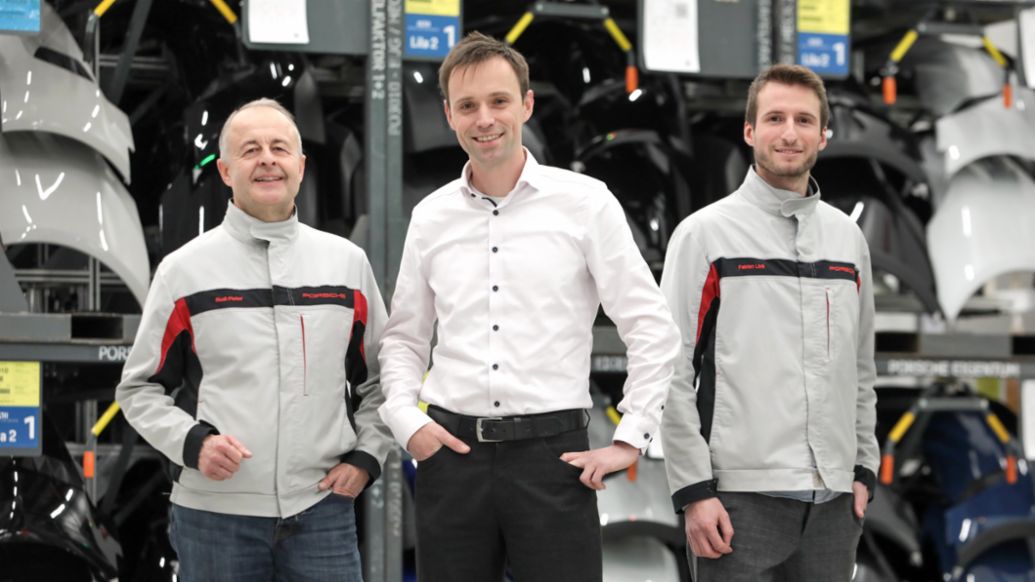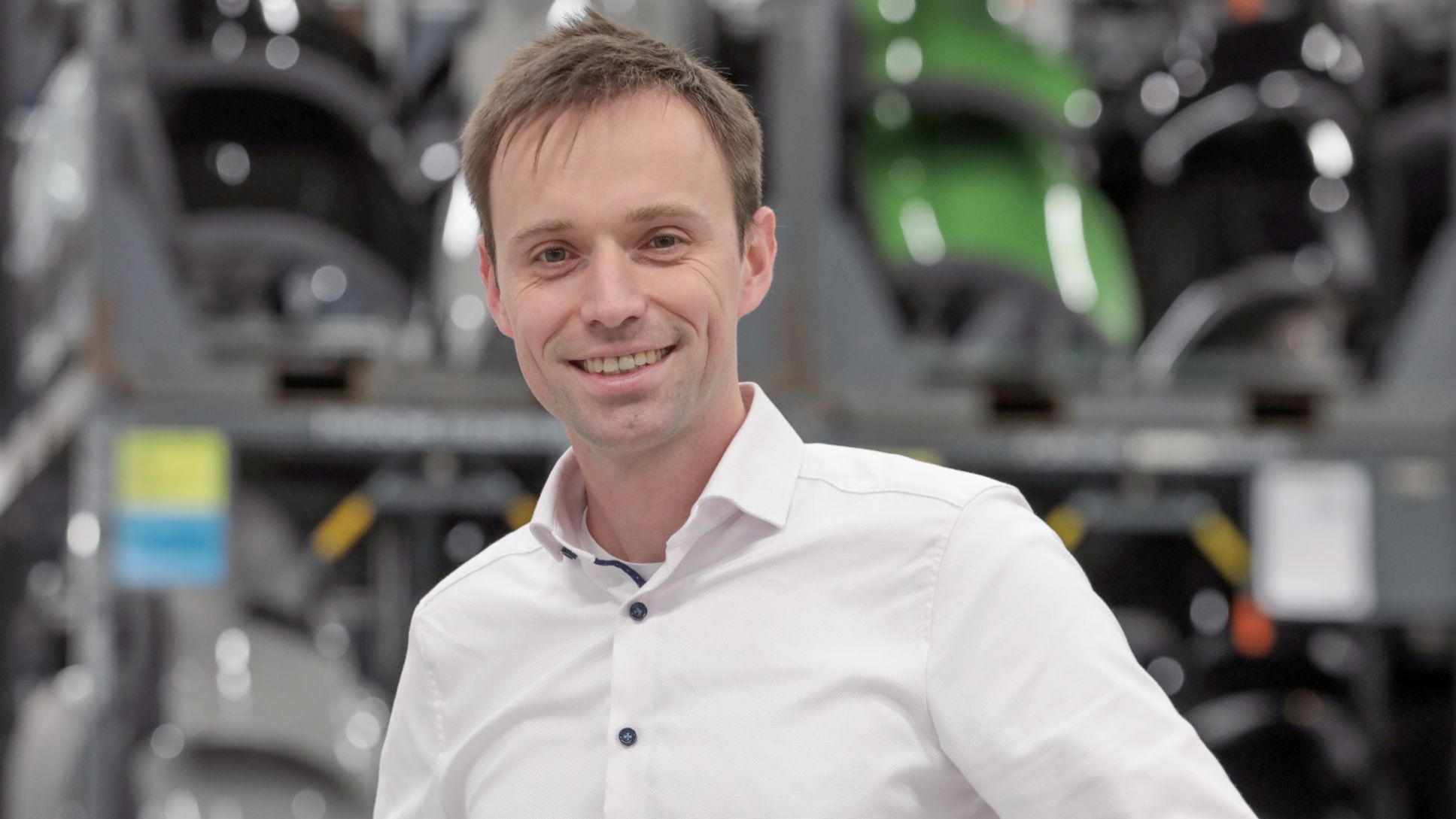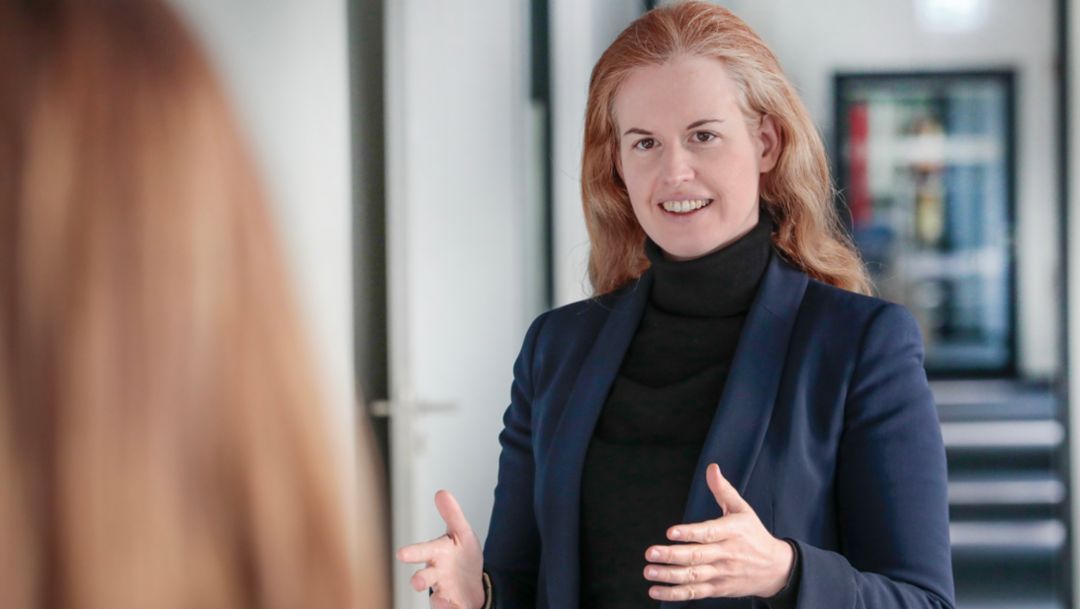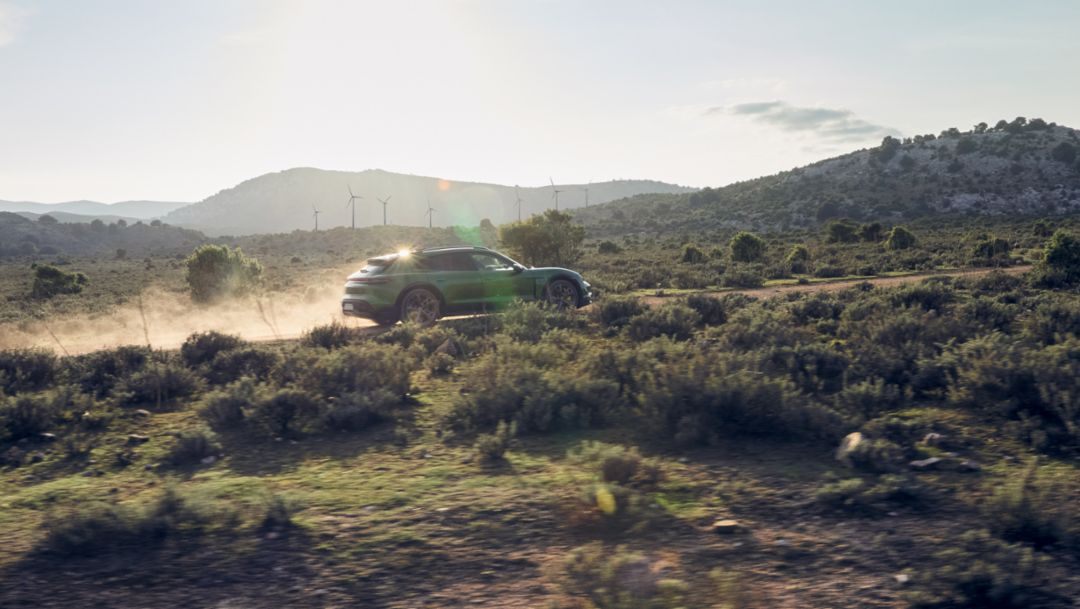Markus, why is the issue of sustainability so important to you personally?
Markus Fritzsche: I’m a real nature-lover. As a passionate skier, it’s a strong personal conviction of mine that people should live in harmony with nature. I also want to be able to share the pleasure of skiing with my grandkids. We’re just guests here on Earth – the dramatic melting of glaciers and the current winter sport conditions in Central Europe at the beginning of 2023 really concern me. I think we’re all noticing that the world is changing more and more, whether it’s storms, unseasonable cold, heat waves or floods. So we need to take a proactive approach to climate protection – particularly in logistics, which are a source of CO2 emissions.

In the Logistics Planning Strategy and Standards department, you’re responsible for ‘environmentally friendly logistics’. How did you arrive at your current position?
Markus Fritzsche: I’ve been working in logistics planning for more than ten years and have had the opportunity to play a role in a wide variety of different areas. I’ve been involved with the topic of ‘alternative truck powertrains’ since the end of 2020. Following a reorganisation of Logistics at Porsche in 2021, I have headed up the overall ‘environmentally friendly logistics’ effort.
What exactly does ‘environmentally friendly logistics’ mean?
Markus Fritzsche: In very general terms, it means everything that could make logistics more environmentally friendly. We are carrying out decarbonisation measures, for one thing. Our big goal is to avoid CO2 emissions, or at least to reduce them to a minimum. One example of this is ‘green transports’. We want to use rail transports, ideally powered by green energy. We also use alternatively-powered trucks fuelled with biogas, for example. But it’s also a question of using bigger LHV units, also known as long trucks. This allows us to save journeys while still transporting the required volume of products. And taking a holistic approach to packaging concepts allows us to reduce CO2 emissions as well. We want to get involved in the development processes for packaging at an early stage to get the most environmentally friendly result possible. The use of sustainable raw materials and avoiding disposable packaging, particularly of plastics, are central here. So the field of ‘environmentally friendly logistics’ can be very multifaceted and important in many areas.
Where does this fit into the Porsche Strategy 2030?
Markus Fritzsche: The Porsche Strategy 2030 and the strategy of the Production and Logistics unit give us a very clear framework. We are fleshing out the Porsche sustainability approach in logistics, which is reflected in the Logistics Strategy 2030, among other places. One of the central objectives is to achieve net carbon neutrality throughout the entire value chain in 2030. As part of that effort, we are in constant dialogue with colleagues in the various strategy departments.
What measures have you undertaken to date?
Markus Fritzsche: We are working together with a number of initiatives in order to create a comprehensive process. The ‘Zero Plastic’ initiative is one example. The initiative works on fundamental questions surrounding the implementation of sustainable packaging – particularly with regard to avoiding plastic waste. We always strive to act in a holistic manner – throughout the entire product lifecycle. One thing we’ve done, for example, is stipulate conditions in the specifications for the tenders of our direct suppliers. The specifications set forth which recyclable disposable packaging they may use. We have also held workshops on optimising packaging and thereby avoiding disposable packaging. Those are just a few of the measures that we would like to expand in the future.
Let’s conclude with a look ahead: what might logistics planning look like in a few years’ time?
Markus Fritzsche: There’s a variety of objectives in this regard. Transport routes, for example, will be served by a sustainable transport concept. The transported components will be in environmentally optimal packaging. In production, the most efficient and resource-conserving equipment will also be used to transport the product to the assembly line. Porsche vehicles will make their way to the end customers in maximum-capacity shipments by the most environmentally friendly means of transport.
Your wish for the future is...
Markus Fritzsche: ...time more than anything. So that we can all really think through all the issues at hand. I also hope that even more people will get actively involved in the area of environmentally friendly logistics. That will allow us to spread the burden over as many shoulders as possible and do our utmost to ensure that we can experience the natural wonders of this world in the future as well.
Info
In the interview series "Perspectives on Sustainability", Porsche employees talk about their specialist subject areas. The interview with Markus Fritzsche is part 3 of the series.



